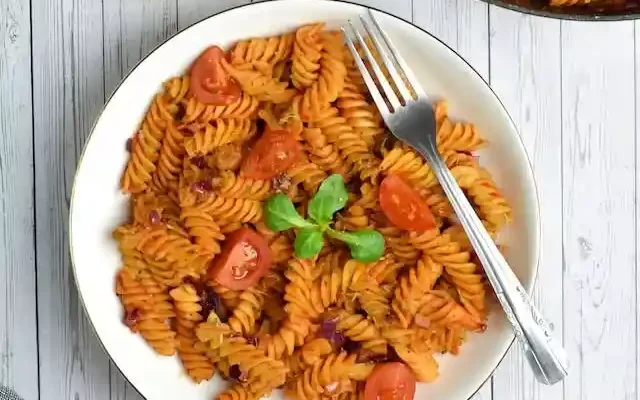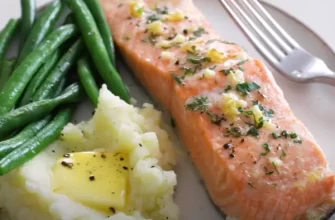What is a Low-Carbohydrate Diet?
A low-carbohydrate diet, also referred to as a low-carb diet, is a dietary approach that focuses on eating whole foods and avoiding foods that are rich in carbohydrates, including sugars, grains, and processed foods. The main goal is to decrease the amount of carbohydrates taken in and instead prioritize consuming high amounts of fats and moderate amounts of protein.
The human body relies on carbohydrates as its main fuel source. Once you consume carbohydrates, your body metabolizes them into glucose, which is then utilized as energy. However, if you consume an excessive amount of carbohydrates, your body will prioritize storing them as fat, consequently resulting in weight gain and obesity.
A diet that limits the consumption of carbohydrates is aimed at helping individuals lose weight, enhance blood sugar management, and lessen the chances of developing chronic conditions like type II diabetes and heart disease. This particular eating plan is typically comprised of nourishing fats found in avocados, nuts, and olive oil, as well as protein-rich foods like meat, poultry, and fish, and non-starchy vegetables such as leafy greens, mushrooms, and peppers.
When is a low carbohydrate diet used?
Healthcare professionals frequently recommend a low-carbohydrate diet to patients to aid in managing different health issues. One of the main reasons people choose this diet is for weight loss. By following a low-carbohydrate diet, cravings can decrease, blood sugar levels can stabilize, and fat-burning processes can improve. Additionally, this approach may lower the likelihood of developing type II diabetes, high cholesterol, and heart disease.
People may choose to adopt a low-carbohydrate diet for various reasons, one of them being to effectively control type II diabetes. This dietary approach can aid in maintaining stable blood sugar levels and minimizing reliance on insulin treatment. Those dealing with metabolic syndrome or pre-diabetes can also benefit from following a low-carbohydrate diet, as it has the potential to counteract negative impacts related to these health conditions.
Furthermore, people with epilepsy and some other neurological conditions have been found to benefit from a low-carbohydrate diet. Research suggests that a low-carbohydrate diet can help reduce the number of seizures in individuals with epilepsy, particularly in children.
It is important to note that a low-carbohydrate diet is not suitable for everyone, and it may not be the best approach for some individuals. It is important to consult a healthcare professional before making any significant dietary changes. A registered dietitian can help determine whether a low-carbohydrate diet may benefit you based on your individual needs and health status.
9 Worst foods for low carbohydrate diets (and why)
While a low-carbohydrate diet can provide various health benefits, it is crucial to avoid certain foods that are high in carbohydrates. Here are the nine worst foods for a low carbohydrate diet:
- Sugar: This includes regular table sugar, high fructose corn syrup, and other forms of added sugars. These contain high amounts of carbohydrates that can quickly spike blood sugar levels.
- Bread: Bread, including white bread, whole grain bread, and bagels, is high in carbohydrates. These foods should be avoided or consumed in moderation.
- Pasta: Pasta is a staple food in many households, but it is high in carbohydrates. Low-carbohydrate alternatives like zucchini noodles or spaghetti squash can be used instead.
- Rice: White rice is high in carbohydrates and should be avoided, but cauliflower rice can be a great low-carbohydrate alternative.
- Potatoes: Potatoes are high in carbohydrates and should be avoided in a low-carbohydrate diet.
- Chips and crackers: These snacks are high in carbohydrates and should be avoided.
- Candy: Candies, as well as sugary drinks, are high in carbohydrates and should be avoided in a low-carbohydrate diet.
- Fruit: While fruit contains healthy nutrients, it is also high in carbohydrates. Low-carbohydrate alternatives like berries or avocados can be consumed.
- Cereal: Breakfast cereals, even those marketed as healthy, are high in carbohydrates. Low-carbohydrate alternatives like eggs or Greek yogurt can be used instead.
Avoiding these foods and choosing low-carbohydrate alternatives can help you stick to your diet and achieve your health goals.
Variety of Low Carbohydrate Diet Foods
If you’re on a low carbohydrate diet, you might feel like your food options are limited. However, there are plenty of low carbohydrate diet foods available that can make your meals healthy, delicious, and varied.
One of the most significant benefits of a low-carbohydrate diet is the increased consumption of protein, healthy fats, and nutrient-dense vegetables. Foods such as meat, chicken, fish, eggs, nuts, seeds, avocado, tofu, and leafy greens are rich in essential nutrients and low in carbohydrates. You can prepare these foods in a variety of ways, from grilling to sautéing, making it easy to incorporate in your meals.
Low-carbohydrate milk and dairy products are also a great addition to a low-carbohydrate diet. Greek yogurt, cottage cheese, and hard cheeses are excellent sources of protein and calcium, and they are also lower in carbohydrates than regular milk and cheese.
If you’re looking for low-carbohydrate snack options, try raw veggies like carrot sticks, celery, and cucumbers with hummus or guacamole. Almonds, macadamia nuts, and pumpkin seeds are also quick and easy low-carbohydrate snack options that provide a satisfying crunch and healthy fats to keep you full between meals.
Example of a Low-Carbohydrate Diet for a Week
Following a low-carbohydrate diet can be a great way to improve your health, lose weight, and increase your energy levels. With low-carbohydrate foods, your body will burn fat for energy instead of relying on carbohydrates, which can help you shed excess pounds and feel more energized throughout the day.
To get started on a low-carbohydrate diet, you’ll need to plan your meals throughout the week. Here’s an example of a low-carbohydrate meal plan that you might find helpful:
Monday:
- Breakfast: Scrambled eggs with spinach and avocado
- Lunch: Grilled chicken salad with cucumber, cherry tomatoes, and feta cheese
- Dinner: Baked salmon with roasted broccoli and cauliflower
Tuesday:
- Breakfast: Low-carbohydrate protein shake with almond milk, spinach, and protein powder
- Lunch: Tuna salad with lettuce, celery, and mayonnaise
- Dinner: Chicken stir-fry with green beans, bell peppers, and mushrooms
Wednesday:
- Breakfast: Greek yogurt with blueberries and walnuts
- Lunch: Grilled steak salad with mixed greens, cherry tomatoes, and goat cheese
- Dinner: Grilled shrimp skewers with zucchini and asparagus
Thursday:
- Breakfast: Low-carbohydrate protein pancakes with sugar-free syrup
- Lunch: Egg salad with lettuce and celery
- Dinner: Baked chicken thighs with roasted brussels sprouts and turkey bacon
Friday:
- Breakfast: Scrambled eggs with smoked salmon and avocado
- Lunch: Cobb salad with lettuce, hard-boiled egg, turkey bacon, and blue cheese
- Dinner: Baked turkey with sautéed kale and mushrooms
Saturday:
- Breakfast: Low-carbohydrate protein bar with coffee
- Lunch: Grilled chicken Caesar salad with romaine lettuce and parmesan cheese
- Dinner: Grilled lamb chops with roasted bell peppers and eggplant
Sunday:
- Breakfast: Low-carbohydrate pancakes with sugar-free syrup and turkey bacon
- Lunch: Avocado and shrimp salad with mixed greens and cherry tomatoes
- Dinner: Spaghetti squash with meat sauce and parmesan cheese
Remember, this is just an example of a low-carbohydrate meal plan. You can customize your meals to fit your preferences and dietary needs. By incorporating nutrient-dense, low-carbohydrate foods into your diet, you can create delicious, healthy, and varied meals that support your health goals.









